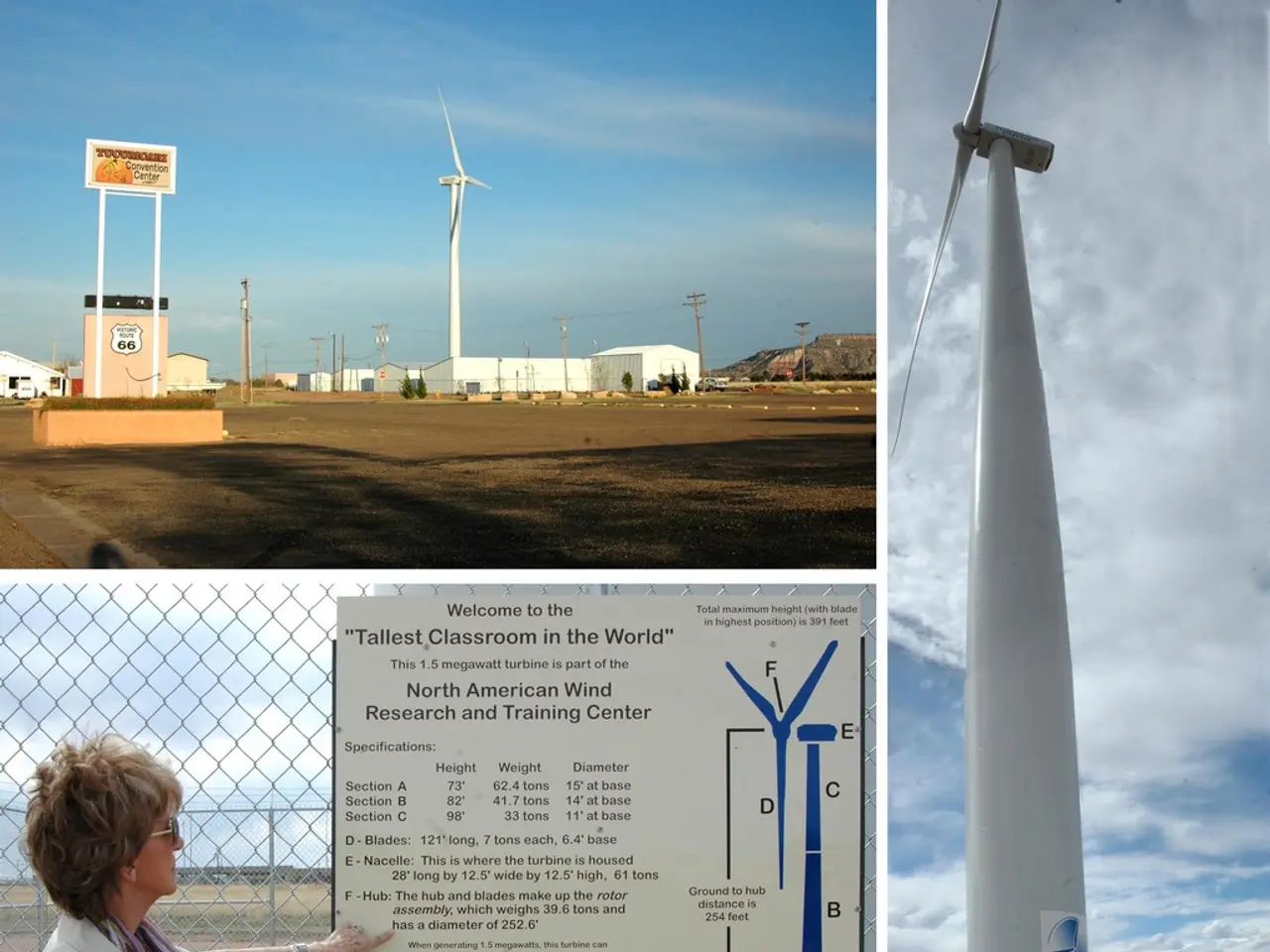Tension escalates within TransnetBW's network infrastructure
In an effort to save costs and reduce carbon dioxide emissions, TransnetBW, the grid operator, has announced a tight network situation for Tuesday, September 19, 2023, from 10 a.m. to 12 p.m. This announcement comes as the German Weather Service predicts a storm at the North Sea, accompanied by lively southwest to west wind and heavy storm gusts on the North Sea islands.
During such weather conditions, an oversupply of regeneratively generated power often occurs, which cannot be fed into other parts of the country. To maintain grid stability, additional power generation or external power purchase may be necessary. In this case, TransnetBW is asking power consumers to reduce their consumption during the specified time frame.
The power grid stability issue is particularly relevant during weather conditions with storms and heavy winds at the North Sea. In the past, weather differences in the Federal Republic have caused tight network situations. To handle these operational challenges economically and sustainably, several strategies are being employed.
One such strategy is real-time grid management with flexible, scalable control systems like Hitachi Energy’s Network Manager. These systems integrate distributed resources and dynamic data, improving grid stability during weather-induced variability. Collaboration and data sharing across utilities using unified network models and standards also enhance grid-wide responsiveness and resilience.
IoT and AI-enabled smart grids play a critical role in optimizing the supply-demand balance. These technologies enable two-way communication and intelligent load balancing, which optimizes power flow, prevents outages, and supports cleaner energy integration. By shifting power consumption, particularly non-essential loads to off-peak times, utilities can lower operational costs and carbon emissions associated with peak power production.
In summary, the combined strategies of real-time grid management, collaboration and data sharing, IoT and AI-enabled smart grids, and demand shifting enable power grids to handle tight operational conditions economically and sustainably. Consumers are encouraged to check TransnetBW's app for updates regarding the power reduction request on Tuesday, September 19, 2023.
- To address the increased renewable energy generation in the face of climate-change-induced weather conditions, TransnetBW is utilizing IoT and AI-enabled smart grids for intelligent load balancing, thereby preventing outages and supporting cleaner energy integration.
- As part of its efforts to handle weather-induced variability in the power grid, TransnetBW is collaborating with other utilities, sharing data using unified network models and standards to enhance grid-wide responsiveness and resilience.
- In the context of the environmental-science issues related to climate change and energy, TransnetBW is seeking to optimize the supply-demand balance by employing real-time grid management systems with flexible, scalable control systems like Hitachi Energy’s Network Manager.
- The increasing dependence on renewable energy sources in the industry necessitates careful financial planning, as the industry works towards minimizing carbon dioxide emissions while maintaining grid stability, particularly during weather conditions with storms and heavy winds at the North Sea.





